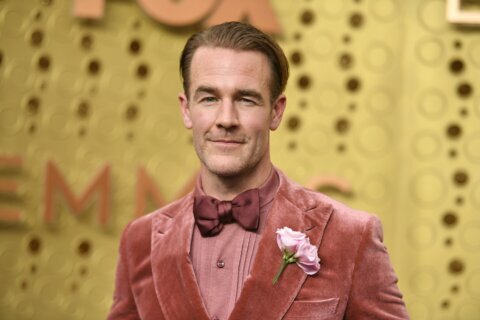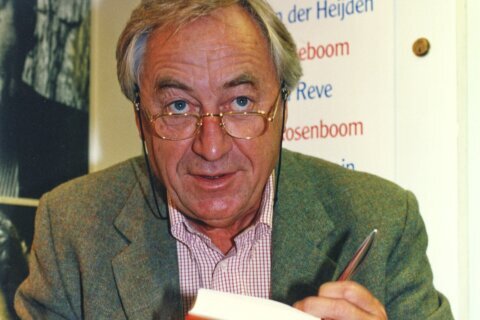This video is no longer available.
Hear our full conversation on my podcast “Beyond the Fame.”
Aside from “Everything Everywhere All At Once,” the year’s most aptly-named movie is “Women Talking,” as it is indeed two hours of women talking. However, the subject of their discussion is some of the most powerful filmmaking you’ll see all year — or any year.
After a limited release in December, the film opens in movie theaters everywhere on Friday, so actress Sheila McCarthy joined WTOP to discuss the Oscar contender.
“People have come up to me after seeing the movie and they’re very moved by it,” McCarthy told WTOP. “This movie is about people talking to people and starting a conversation so change can happen … This movie demands a certain patience to sit and watch it, but get your popcorn because the payoff, the joy at the end, I think is worth it.”
Set in 2010, the film follows eight women from an isolated Mennonite colony who grapple with reconciling their reality with their faith after discovering that men from their community have been drugging and raping the women at night for years, claiming it was the Devil.
The horrific premise is based on the true story of a Mennonite colony in Bolivia where over 150 women were raped by nine men for four years from 2005 to 2009. This loosely inspired Miriam Toews’ 2018 novel, which is now adapted by writer/director Sarah Polley.
“Several women finally communicated to their elders that they were being sexually abused, horse tranquilized and raped,” McCarthy said. “The men were arrested by the Bolivian government and are still incarcerated. … It’s an incredibly horrific situation, Miriam took that truth and turned it into a fable of what would happen if women could have a vote.”
That vote, cast by an “X” from women who can’t read or write, has three options: (1) stay and do nothing, (2) stay and fight, or (3) leave the colony. We hear compelling arguments for each approach from the powerful ensemble cast, including McCarthy, Rooney Mara, Claire Foy, Jessie Buckley, Judith Ivey, Ben Whishaw and Frances McDormand.
“When my agent told me who was in the cast, I went, ‘Shut up! What?’ I really fan-girled for the first couple of weeks,” McCarthy said. “We were doing 11-page scenes for two or three days, we did 120 takes because the cameras had to roll around nine of us, one at a time, and everybody brought their ‘A’ game every single time. It was like being at the Olympics!”
The women’s faces and body language speak volumes, while the dialogue is riveting with masterful monologues that somehow manage to feel organic despite being so eloquent.
“That was our concern — it rolls out like theater and could be a play,” McCarthy said. “She’s woven such an incredible mosaic of dialogue into scenes into music into tension. I equate this movie like doing one long hymn. … She took tons from the book, it was a reverent script. … The line ‘you can’t stay, so you must leave’ is something I said to her.”
As a director, Polley presents a desaturated color palette to show the muted existence of the trapped women. The camera is often static inside a barn, allowing the blocking of the characters to convey meaning, broken up by quick flashbacks of the assaults. Polley intentionally never shows the faces of the male abusers, focusing on the women’s trauma.
“Just when the (audience) is going ‘where can this go?’ she cuts away to the most beautiful and sometimes horrific visuals … the children in the field, the boots of the men,” McCarthy said. “She very deliberately does not show the actual (abuse), it’s the aftermath, the before and after, which I think is a really compelling and more moving way to show those crimes.”
Here’s hoping Academy members reward the effort when casting their Oscar votes.
“When you see us at the film festivals and there’s 20 women on stage, that’s a powerful optic to look at, it speaks for itself,” McCarthy said. “I’m so proud to be part of this film and I think Sarah (Polley) deserves every Oscar on the planet for this creation of hers. … We’ve already been given the Robert Altman Award at the Spirit Awards, so that’s huge!”
Hear our full conversation on my podcast “Beyond the Fame.”









